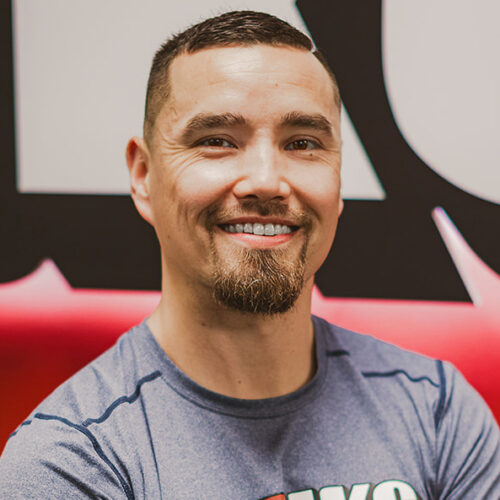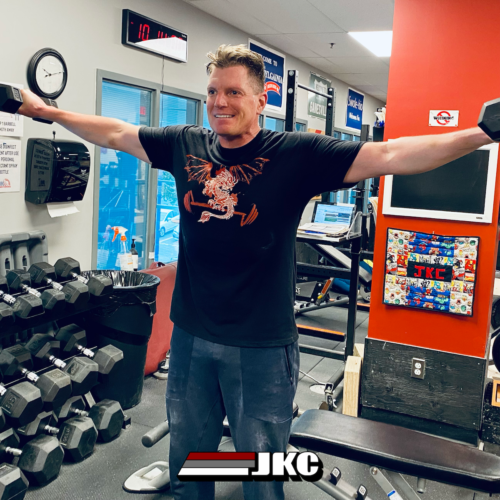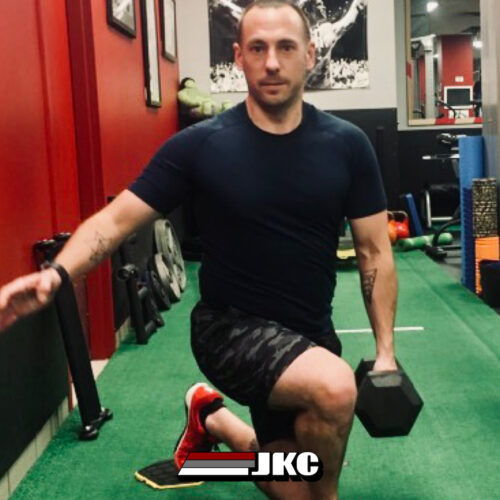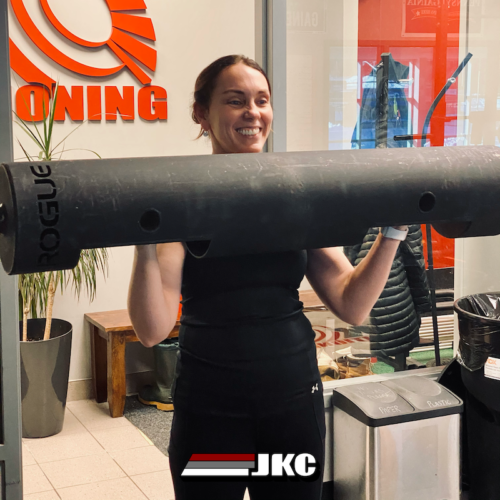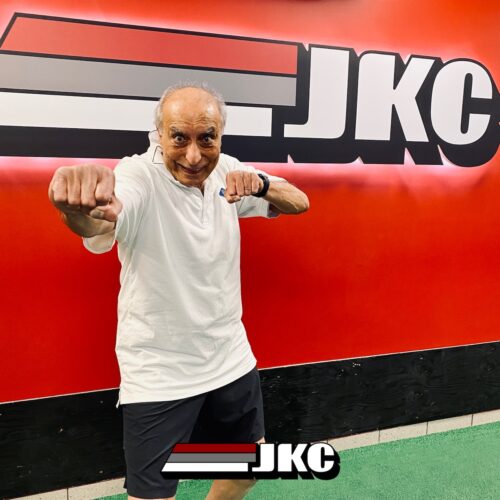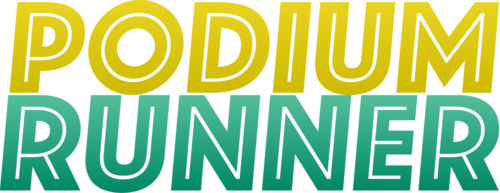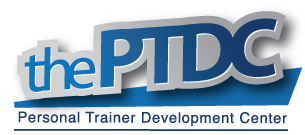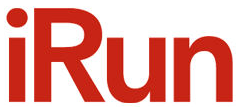
With the state of the nutrition world, it’s difficult to know what to eat and what to avoid. One week eggs are good for you and the next they are comparable to smoking. My personal favorite is eating fat will make you fat, so eat more carbs (not true). It’s tough to know what resources are legit, both online or at the bookstore. Lately, I’ve tried to post nutrition articles that I think are legit and actually carry some merit in my Good Fitness Reads I Read This Week posts. You may have noticed that some of these articles recommend skipping breakfast. A diet getting a lot of press lately is intermittent fasting (IF), which essentially states that you should fast for 16-24 hours either daily or every other day, respectively, either skipping eating at the beginning or end of the day (if doing the 16-hour fast).
Some people love it and some people think it’s just a fad waiting to pass. It’s not new as it’s been around for a while, 1st recommended in The Warrior Diet by Ori Hofmekler, which came out 5 years ago. I didn’t know much about it so I downloaded John Beradi’s IF self experiment ebook and also bought Jason Ferruggia’s The Renegade Diet (which suggests 16-hour daily fasts). Another diet, which also skips breakfast, is Carb Back-loading by John Kiefer and another person popular for promoting IF is Martin Berkhan (from Leangains.com). We’re always told that breakfast is the most important meal of the day and that eating breakfast actually gets our metabolism fired up for the rest of the day; however, lately, I’m told otherwise.
Recently, I just did an email interview with Jason Maxwell, a fitness professional from Toronto, Ontario. He’s written many nutrition articles for reputable sites such as T-Nation, the Greatest and Breaking Muscle so I thought it would be a good idea to ask Jay about his experience and opinion on this IF business. Let’s get to it:
JK:Hey Jay, thanks for doing this interview. For those that don’t know who, can you give me a brief bio?
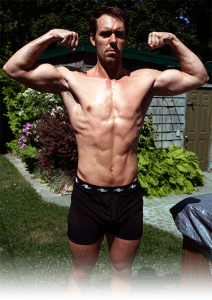 JM: Sure Jon. You’ve got it. Long story short, I grew up in a small town (less than 3500 people). I was a chubby kid until puberty. After that, I lost a ton of fat and grew a few feet. Even though I lost fat, I was still skinny-fat all the way through high school. In University (Aerospace Engineering Major), I really learned the tricks of the trade and started lifting weights and absolutely killing it with nutrition. I also started intermittent fasting (IF) and found that it helped me get rid of the puffy nipples and excess belly fat. A few years back I started personal training and nutrition coaching and here I am now: a rocket scientist turned fitness professional.
JM: Sure Jon. You’ve got it. Long story short, I grew up in a small town (less than 3500 people). I was a chubby kid until puberty. After that, I lost a ton of fat and grew a few feet. Even though I lost fat, I was still skinny-fat all the way through high school. In University (Aerospace Engineering Major), I really learned the tricks of the trade and started lifting weights and absolutely killing it with nutrition. I also started intermittent fasting (IF) and found that it helped me get rid of the puffy nipples and excess belly fat. A few years back I started personal training and nutrition coaching and here I am now: a rocket scientist turned fitness professional.
JK: Wow, that’s quite the switch over! Alright, you’ve written a lot about IF. How did you get into IF and can you discuss what it is?
JM: Ya, I would say that IF is my niche these days. It’s what I love to write about because it goes against conventional nutritional wisdom, and is super easy to do. Basically, here’s IF in a nut shell: don’t eat for an extended period of time and skip meals whenever you feel like (including breakfast). I really started practicing IF because I was eating low amounts of calories to drop some body fat, but I was so hungry all the time, and it sucked eating so many small meals throughout the day. I wanted to eat big. I started skipping breakfast and eating 1-3 meals per day and haven’t looked back. I noticed improvements in body composition, compliance, and metal focus. Life is good when you’re not constantly thinking of eating.
JK: Interesting. I used to think eating (and still hear) that eating breakfast is the most important meal of the day. I’ve also read that skipping breakfast or eating vegetables or coconut oil only, does not trigger a spike in insulin, which allows growth hormone to continue to rise in the AM. I’ve also read that your body is a fat burning furnace in the morning and by not eating, the body will burn more fat. Can you set me straight? Do you have any supporting scientific research?
JM: Here’s the deal: no, breakfast is not the most important meal of the day. We’ve actually evolved to function optimally by not eating breakfast. Look at our ancestors: in the morning, the women would gather while the men would go out and hunt. No one was doing much eating besides a few berries, nuts, and seeds here and there. The eating started in the evening after the men brought home their kill for the day. They would prepare and feast and eat 90% of their calories for the day in the evening.
If you’re looking for some hard science, here’s what you need to know. In the morning, cortisol levels are naturally high. Cortisol is a catabolic hormone, which means it tells your body to break down things such as fat, muscle, and other tissue. You want cortisol to naturally lower throughout the day, but in the morning, it’s beneficial to be high because it is breaking down fat naturally. Spiking insulin (via carbs) will actually help lower cortisol and kill all the fat burning. Now, I know I said that cortisol breaks down muscle as well, but skipping breakfast doesn’t seem to make you lose any muscle. This is because the body isn’t taking in any food, so it will produce extra growth hormone. This growth hormone mobilizes fat so it can be used for energy. Yet, again, you are burning more fat in the morning. Why ruin this?
As for coconut oil and veggies, I can see why this would be recommended because the veggies can help you feel satiated (if you love eating in the morning), and coconut oil is a medium chain triglyceride and can be used almost as immediate energy. The only problem with this approach is for people just starting IF. By ingesting too many carbs, most people have trained their bodies to run primarily on carbohydrates instead of fat. If your body uses carbs for energy, using coconut oil in the morning will just lead to fat storage in the early stages until your body realizes that it functions optimally on fats instead of carbs.
JK: I’ve heard people say IF is a fad and say that at the end of the day, it just comes down to calories in & calories out. Do you think IF is a fad and what do you have to say to this?
JM: It’s not a fad but it’s damn popular right now. It’s so popular, that I just recently saw John Berardi speak on the topic at the Can Fit Pro Conference. Obviously, a lot of people had never heard of IF, since some questions consisted of, “Are we allowed water when we fast?” and “Isn’t breakfast the most important meal of the day?”.
It’s starting to catch on and your clients will inevitably ask you about it sooner or later. It’s a method that works, and it’s here to stay. In the end, a good nutrition program will come down to 3 things:
- Food Choices
- Calories in vs Calories Out
- Compliance
Compliance is huge! If you’re not able to stick with the program, then it’s not going to work!
IF works so well in practice because you’re not a slave to eating everything 3 hours, thus your compliance is usually higher. It doesn’t take any research to figure that out. It’s logic.
Also, a lot of people naturally skip breakfast, so telling them to start eating it will cause some people more stress than just saying, “cool, let’s skip breakfast and eat when you’re hungry”. The best part about this approach is that the typical American breakfast is a diabetic’s nightmare (food choices).
This leaves us with calories in vs calories out. I’m a firm believer that if you have great compliance with great food choices, then you will start to need to track calories. IF is a great way to control calories because if you overeat one day, you can under-eat the next and still be at the right caloric balance for the week.
JK: Great answer Jay. Who do you recommend should try IF?
JM: I think that everyone should try IF. Here’s why: everyone is already doing it. It happens when you sleep. You’re skipping eating. IF isn’t a big deal. It’s just not eating for a little while. Have you ever slept in on a weekend until noon? Ya, you just did a longer fast.
The reason I like intermittent fasting so much is because you no longer have to worry about eating every 3 hours. I remember I used to freak out if I missed a meal by 30 minutes. I would go nuts. This would stress me out and elevate my cortisol to unhealthy levels. No one needs that kind of stress in their lives.
If you want to try IF, here’s a great way to do it. Tomorrow, instead of eating your normal breakfast, drink 500mL of water. If you love breakfast, you’ll be hungry; I promise. The thing is, the more you do it, the less you’ll feel hungry in the morning (this usually takes about 2 weeks, tops).
If fat loss is your goal, you may want to consider not eating for an entire day. This takes some will power, but is a great way to actually know what it feels like to be hungry, as opposed to just craving food. There’s also a ton of research showing the benefits of not eating for a day. I love it as a way to detox the body from all the crap we normally eat.
JK: Is there a way to ease into it?
JM: The best way to ease into IF is to stop worrying about when you should be eating, and skip a meal here and there. I personally recommend starting with skipping breakfast, but if it doesn’t work for you, skip lunch or dinner instead. In the end, do what works for you, just make sure that you’ve given everything a fair shot. By fair shot, I mean, try skipping breakfast every day for 2 weeks. If it still doesn’t work after 2 weeks, then it may not be for you. In the end, eat when you’re hungry and who cares if you miss a meal. That’s life.
JK: What about nutrition for the rest of the day? What do you recommend to people who want to lose fat? What about those who want to put on muscle?
JM: This can be a whole other subject. I partially think that fasting works very well for 3 reasons: 1) you end up eating less calories (duh), 2) you’re not spiking insulin with carbohydrates, 3) compliance increases because you can’t be tempted to eat something that’s bad for you because you’re fasting (it’s easier to turn down bad foods).
Number 2 is what I want to focus on. The body can optimally run on protein and fat. It doesn’t need carbs. By fasting, you are essentially limiting your body from eating carbohydrates, and you naturally allow your body to keep insulin low and burn more fat. If you want to get into the finer details of nutrition, know this: for fat loss, save carbs for the evenings of days that you work out. Eat protein and fat at all other meals. Add in a weekly full day fast to keep calories low for the week. It’s pretty simple stuff.
If gaining muscle is your goal, follow the rules I gave for fat loss, but simply eat larger portions of everything, and don’t perform a weekly full day fast. Good nutrition is still good nutrition.
JK: Thank you so much for you time Jay. You have a product/book/ebook – can you tell us about that? Lastly, how can people get ahold of you?
JM: Actually, I do. I wrote a whole book on the subject, and it’s called the Fast Fat Revolution. Basically, it takes you by the hand and eases you into intermittent fasting, good nutrition, and working out for losing fat and gaining muscle. It’s the kind of program that I wish I had when I started performing IF.
If people need to contact me, they can fill out the contact page on my website www.JMaxFitness.com, or hit me up on Facebook at www.Facebook.com/JMaxFitness. Thanks for the interview Jon, it’s been a pleasure and if I even helped one person understand IF a little bit better, then I feel that this interview was a success.
JK:Thank you Jay.
To check out Jay’s Fast Fat Revolution, click HERE.
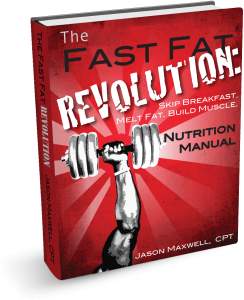
For more resources/articles on IF:
John Berardi’s free IF experiment ebook, click HERE.
All About Intermittent Fasting by Ryan Andrews (on Precision Nutrition), link HERE.
Leangains.com via Martin Berkhan
Jason Ferruggia’s The Renegade Diet, click HERE.
John Kiefer’s website DangerouslyHardcore.com
Anthony Colpo’s The Fat Loss Bible (think’s IF is more of a fad and that it just boils down to counting calories)
References:
Anderson IM, Crook WS, Gartside SE, Fairburn CG, Cowen PJ. The effect of moderate weight loss on overnight growth hormone and cortisol secretion in healthy female volunteers. J Affect Disord. 1989 Mar-Jun;16(2-3):197-202.
Koutkia P, Canavan B, Breu J, Johnson ML, Grinspoon SK. Nocturnal ghrelin pulsatility and response to growth hormone secretagogues in healthy men. Am J Physiol Endocrinol Metab. 2004 Sep;287(3):E506-12.
Moller L, Norrelund H, Jessen N, Flyvbjerg A, Pedersen SB, Gaylinn BD, Liu J, Thorner MO, Moller N, Lunde Jorgensen JO. Impact of growth hormone receptor blockade on substrate metabolism during fasting in healthy subjects. J Clin Endocrinol Metab. 2009 Nov;94(11):4524-32.
Nørrelund H, Møller N, Nair KS, Christiansen JS, Jørgensen JO. Continuation of growth hormone (GH) substitution during fasting in GH-deficient patients decreases urea excretion and conserves protein synthesis. J Clin Endocrinol Metab. 2001 Jul;86(7):3120-9.
Samra JS, Clark ML, Humphreys SM, Macdonald IA, Matthews DR, Frayn KN. Effects of morning rise in cortisol concentration on regulation of lipolysis in subcutaneous adipose tissue. Am J Physiol. 1996 Dec;271(6 Pt 1):E996-1002.
